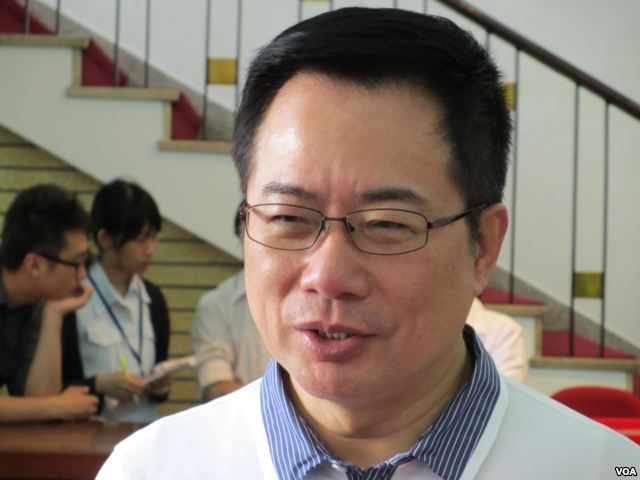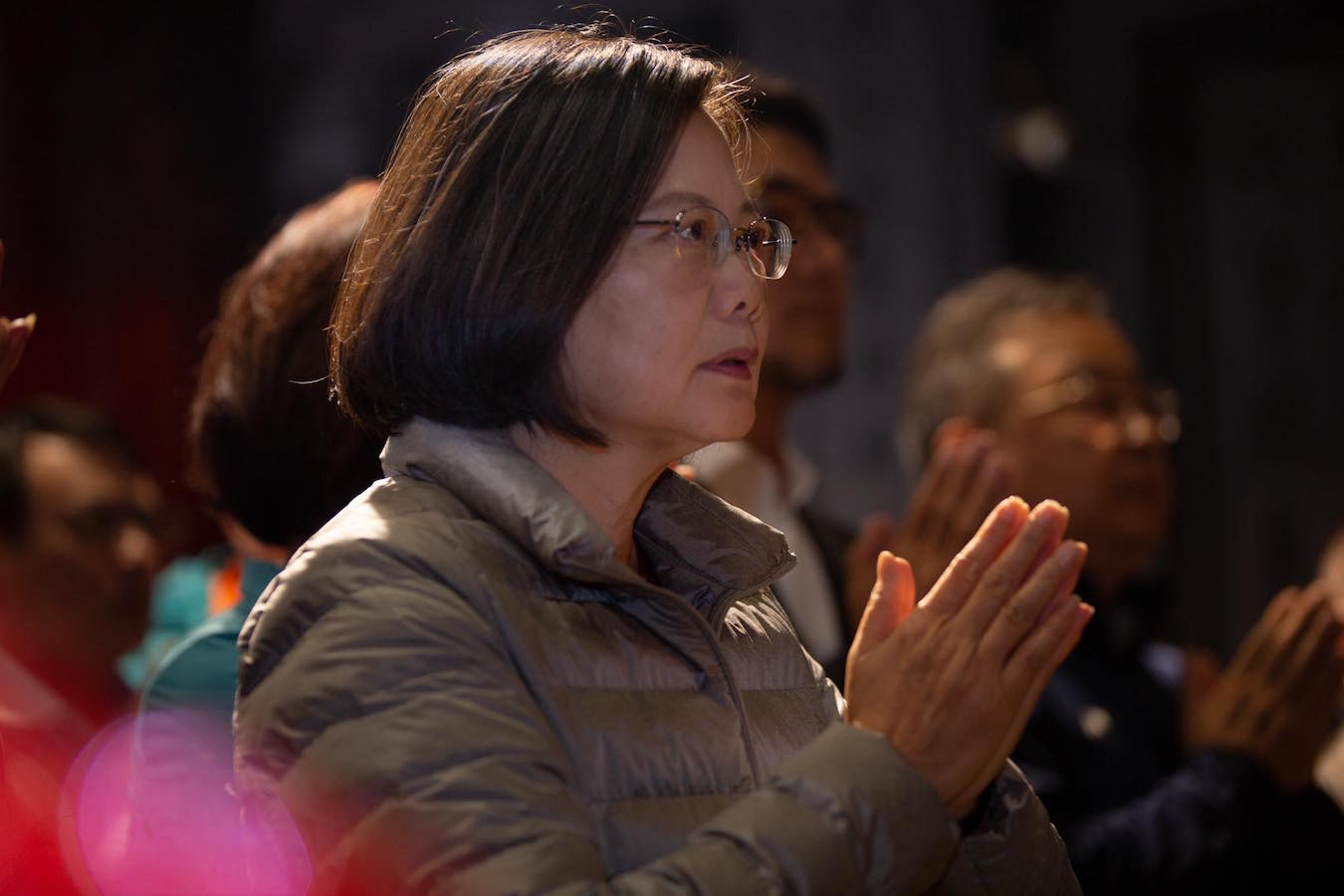by Brian Hioe
語言:
English
Photo Credit: Tsai Ing-wen/Facebook
ONE NOTES that attempts to target the Tsai administration for its handling of the coronavirus crisis from members of the pan-Blue camp have taken a number of different approaches in past days. That there is no ideological consistency among these attempts to attack the Tsai administration is likely illustrative of the internal splits within the pan-Blue camp.
Some attempts to criticize the Tsai administration have suggested that the efforts of the Tsai administration to combat the spread of the Coronavirus have been cold-blooded or inhumane, specifically citing the Tsai administration’s restrictions on the export of surgical or medical masks. Among those to criticize the Tsai administration on such grounds—suggesting that the Tsai administration is abandoning China in a time of need—have included pan-Blue media commentator Joyce Huang, entertainer Huang An, Taoist religious figure Shih Hui-gu, KMT deputy secretary-general Alex Tsai, and former KMT legislator Chiu Yi.
 Alex Tsai of the KMT. Photo credit: VOA/Public Domain
Alex Tsai of the KMT. Photo credit: VOA/Public Domain
One notes that Tsai and Chiu hardly seem to be in any position to criticize the Tsai administration, Tsai having recently been in the news for death threats against self-confessed Chinese spy Wang Liqiang, who is currently seeking asylum in Australia, if he did not assist Tsai with a DPP smear campaign. Chiu has also advocated decapitating advocates of Taiwanese independence once unification is achieved in the past. To this extent, Taiwan actually primarily imports masks from China and exports masks to the US or Japan.
Other attempts to criticize the Tsai administration have been conspiratorial in nature. For example, one notes the spread of online rumors claiming that the Tsai administration is hoarding surgical masks and selling them at inflated prices. One set of such rumors which were widely disseminated claimed that masks cost around 1 NT to produce but that the Tsai administration had ordered masks to be sold at 4 NT or 5 NT in convenience stores in order to make a profit of 4.5 billion NT per month, given the daily distribution of 4 million to 6 million masks.
It is true that price gouging has taken place in some stores regarding the sale of increasingly scarce masks, but rumors attempting to smear the Tsai administration as seeking to make a profit off of the Coronavirus panic have been traced to pan-Blue Line groups and Facebook groups supportive of former KMT presidential candidate Han Kuo-yu. A 48-year-old elevator technician living in Taoyuan, Hsu Te-chung, is currently facing defamation charges from spreading such rumors, though there are other cases of disinformation regarding the Tsai administration’s handling of the Coronavirus crisis, such as regarding rumors of Coronavirus patients in Taichung. Some politicians, such as Taipei mayor Ko Wen-je, have not helped matters by publicly revealing what should be confidential information—inclusive of where Coronavirus patients are currently housed.
One notes that similar rumors have broken out in Hong Kong regarding the Hong Kong government’s handling of the Coronavirus outbreak and claims that the government is hoarding masks. To this extent, the Chinese government has also engaged in disinformation efforts aimed at making it appear as though its response to the crisis is more rapid than it actually has been. Nevertheless, the spread of such rumors continues attempts to claim the Tsai administration as corrupt that were also seen during the 2020 election season, such as regarding a cigarette smuggling scandal involving National Security Bureau members that were traveling with Tsai on an overseas diplomatic visit, or accusations from KMT presidential candidate Han Kuo-yu that the sizeable budget of the Forward-Looking Infrastructure Bill masks corruption.
In the meantime, the central KMT party authority has actually been among those to call for Taiwan’s inclusion in the WHO and other international organizations. This would indicate the strength of public blowback against Taiwan’s exclusion from the WHO and other international organizations in wake of the Coronavirus outbreak, seeing as Taiwan’s exclusion from the WHO means that Taiwan will not have access to information regarding the spread of the disease, and is denied access to international resources for fighting the disease. Taiwan’s non-inclusion in the WHO also led air traffic between Taiwan, Italy, and Vietnam to be suspended, though Vietnam later reversed course and cited that it had made a mistake in banning air traffic with Taiwan despite that the ROC and PRC are not the same geopolitical polity. The KMT notably did not specifically criticize China, the direct cause of Taiwan’s exclusion from such organizations, in statements calling for Taiwan’s inclusion in the WHO, however.
 President Tsai Ing-wen of the DPP. Photo credit: Tsai Ing-wen/Facebook
President Tsai Ing-wen of the DPP. Photo credit: Tsai Ing-wen/Facebook
On this point, it is also clear that not all of the pan-Blue is on the same foot regarding the Coronavirus. There are continued tensions within the party regarding whether the defeat of the party in 2020 elections means that the party needs to renew attempts to localize which, again, can be contrasted with the fact that prominent KMT politicians such as Alex Tsai and Chiu Yi have focused criticisms not on the Chinese government, but on the Tsai administration for failing to be sufficiently pro-China. As with efforts by the KMT during the election to draw a distinction between the 1992 Consensus, which it advocates, and “One Country, Two Systems,” as implemented by the Chinese government in Hong Kong, efforts to downplay the party’s pro-China leanings because of public blowback against China following the Coronavirus outbreak will likely not be successful. As such, the Coronavirus outbreak will likely end up hurting the KMT.

